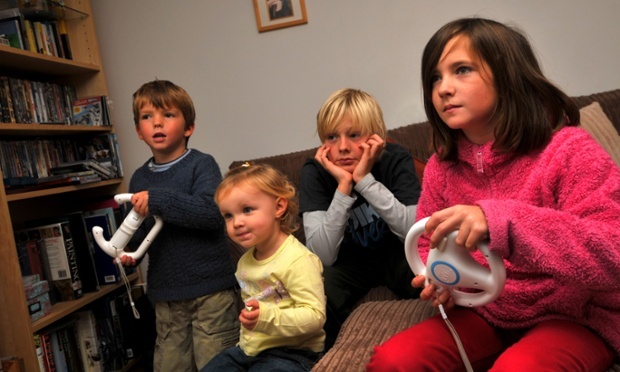The long debate over a video game’s influence on a child’s behavior appears to have reached a conclusion. Per a team of researchers at the University of Oxford, the amount of time a child spends playing the video game has more of an influence on his / her behavior than the type of game they choose to play.

Children who play video games more than three hours a day tend to be more hyperactive, get involved in more fights, and show less interest in school than those who spend less than three hours a day playing video games.
Furthermore, there is no link between playing violent video games and real-life aggression, nor does being exposed to this type of content have a negative influence on a child’s academic performance.
Worth noting is that video games can have a positive impact on a child’s behavior. Specifically, allowing a child to play video games for less than one hour a day has proven to be beneficial to the child’s academic and social development. Also, children who played video games with a cooperative and competitive element to it had less emotional problems or issues with their peers. Those who played solitary games did well academically, and also displayed fewer emotional problems / got involved in less fights.
“We can see links between some types of games and children's behavior, as well as time spent playing,” said lead author Dr. Andy Przybylski, from the University's Oxford Internet Institute. “However, we cannot say that game play causes good or bad behavior. We also know that the risks attached to game-playing are small. A range of other factors in a child's life will influence their behavior more as this research suggests that playing electronic games may be a statistically significant but minor factor in how children progress academically or in their emotional well-being.”
Worth noting from the study is the exploration into whether or not playing strategy / puzzle games can boost a child’s school grades or increase their social skills. The team found that exposing a child to this particular type of content had no influence whatsoever, and that neither their grades nor their social skills were any bit better than their non-playing peers.
To gather all of this data, the researchers relied on teachers’ assessments of behavior of individual students at a school. They felt this approach would be a more accurate assessment of the child’s growth / degradation in behavior type as opposed to relying solely on the data and information provided by the young people.
Specifically, the teachers reported whether the 200 pupils in the group were helpful. They also detailed their academic achievements, and whether any of them were rowdy or otherwise got into an altercation.
To protect the privacy of each student, they were numbered.
The assessments the teachers provided were matched with the responses to a questionnaire that asked each of the students, aged 12-13 years old, how long they played video games each day, and the type of games they preferred. The choices included: solo, offline competitive team games, online cooperative and competitive games, combat and violence, puzzle and strategy, and sports / racing games.
“These results highlight that playing video games may just be another style of play that children engage with in the digital age, with the benefits felt from the act of playing rather than the medium itself being the significant factor,” said co-author Allison Mishkin.
These findings strengthen the recommendation set forth by the American Academy of Pediatrics, which states parents should pay closer attention to the amount of time their child spends playing video games.
Findings from the study have been published in the journal, Psychology of Popular Media Culture .
Via ScienceDaily
Advertisement
Learn more about Electronic Products Magazine





